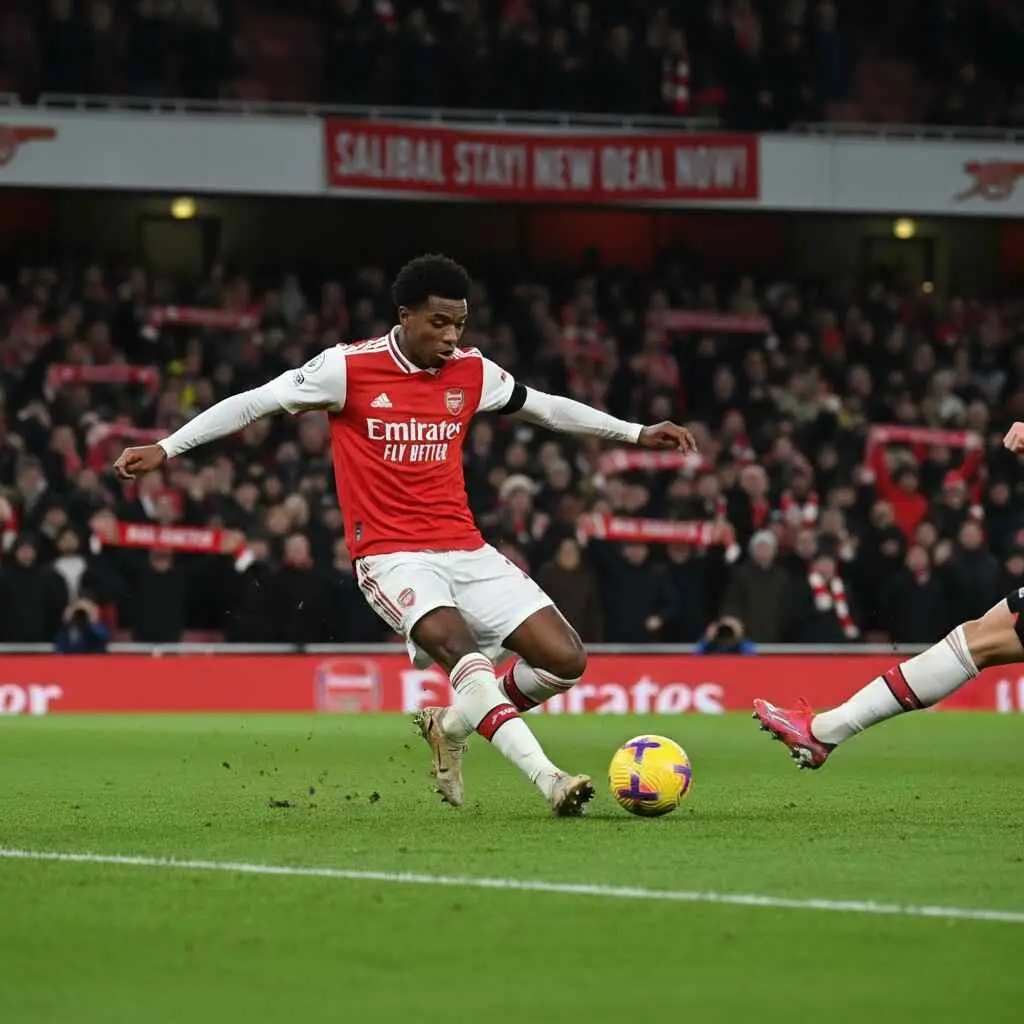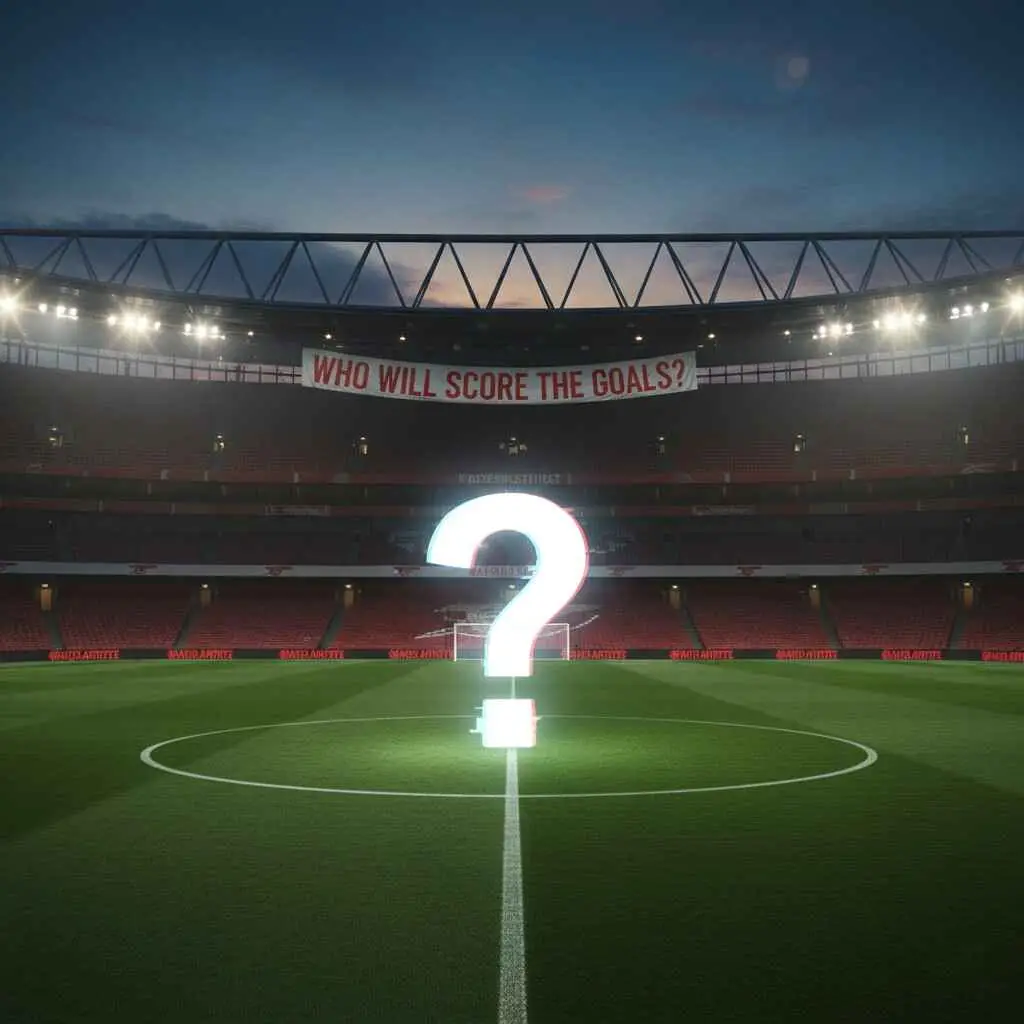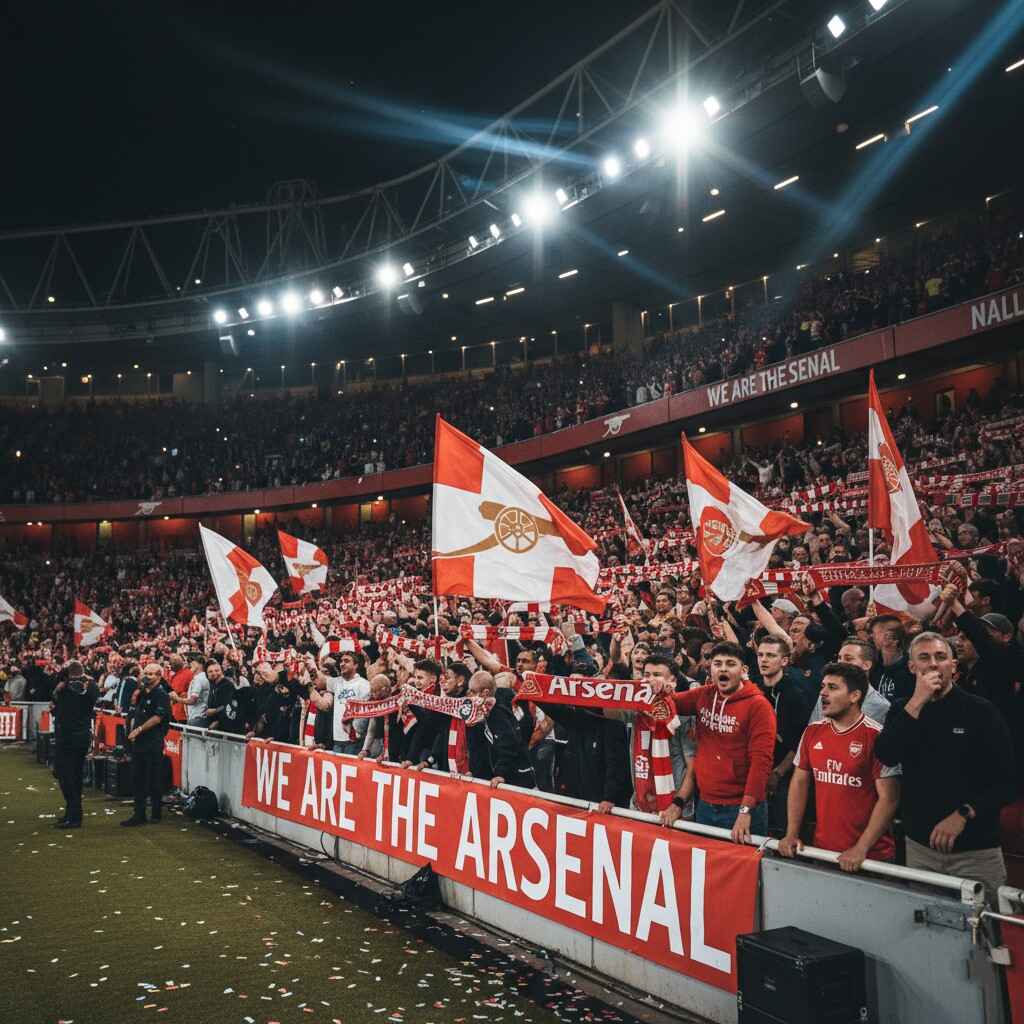Arsenal’s balancing act
William Saliba’s contract talks could become the biggest deal in Arsenal’s history, and they come as Mikel Arteta also demands January signings.
There’s an old saying in football: you build from the back, but you win from the front. Arsenal are living proof of that right now. Mikel Arteta’s team is one of the best defensively in the Premier League, but when it comes to scoring goals consistently, the squad still feels short.
That’s why this winter has put Arsenal on a fascinating two-track path. On one hand, the club is locked in talks with William Saliba over a new contract that could smash their current wage structure and go down as one of the most expensive deals in club history. On the other, Arteta has made it clear he wants reinforcements in January — especially in attack — to keep Arsenal’s title push alive.
In short, Arsenal are trying to solve two puzzles at the same time: securing their defensive cornerstone for the long haul and finding the extra firepower needed right now.
Why William Saliba is worth the investment

Any regular Arsenal watcher knows that Saliba is beyond discussion. At only 23 years of age, he is already able to control things in a calm and composed manner, as if he had been around for years. After coming back from his loan at Marseille, he has practically rebuilt Arsenal’s defense, allowing them to play with a dignity and regulation that they had not seen for years.
The difference in Arsenal’s achievements with and without him is very obvious from the statistics. In the 2022–23 season, when Saliba was injured and therefore absent for the final stretch, the Gunners’ bid for the title fizzled out. The team not only conceded fewer goals when he played but also looked more comfortable in possession, as he had expected.
This is the reason why the club is said to be willing to give him a new contract, which will amount to around £300,000 per week, thus not only making him the highest-paid player in the team but also one of the top-paid defenders in Europe.
The player is not the only one who will benefit from such a decision if it happens; it will also be the club’s project that will be safeguarded. The player has even been associated with a move to Real Madrid, and Arsenal have made up their mind not to repeat history—that is, the time when the club allowed the likes of Cesc Fàbregas and Robin van Persie to go easily and at their peak.
The January headache: finding goals

If Saliba’s deal is about the future, January is about survival. Arsenal may be defensively solid, but goals win games — and that’s where cracks have appeared.
Gabriel Jesus’ injury has left Arteta without a natural striker. Bukayo Saka, though world-class, has been carrying knocks and can’t be asked to shoulder the scoring burden alone. Gabriel Martinelli and Leandro Trossard chip in, but Arsenal still lack a ruthless finisher who can decide tight matches.
Arteta recently admitted the club is “actively looking” for reinforcements in the winter window. The names linked read like a shopping list of dream strikers:
- Dušan Vlahović (Juventus) — a target from past windows, strong and clinical.
- Benjamin Šeško (RB Leipzig) — young, athletic, and highly rated.
- Viktor Gyökeres (Sporting Lisbon) — prolific in Portugal, a powerful option.
- Alexander Isak (Newcastle) — already Premier League-proven, though difficult to prise away.
- Marcus Rashford (Manchester United) — perhaps the least likely, but his struggles at United have sparked speculation.
The challenge? January isn’t always the best time to land top talent. Clubs know Arsenal are desperate, and that drives prices higher. That’s why fans shouldn’t be shocked if the club opts for a loan signing or a short-term solution — something similar to when they brought in Leandro Trossard last season.
Two tracks, one clear strategy
Some might wonder: is this a contradiction? How can Arsenal justify splashing a record wage on a defender while also admitting they need more firepower?
The truth is, both moves come from the same strategy. Arteta knows you don’t build title-winning teams overnight. You need to retain your best players while also adding the missing pieces.
Saliba’s contract is about building a foundation—something Arsenal hasn’t had since the days of Tony Adams or Sol Campbell. A reliable defensive general is priceless.
At the same time, football is unforgiving. A team can dominate for 80 minutes, but if they don’t have someone to put the ball in the net, all that effort can go to waste. That’s why Arsenal’s January hunt is equally critical. They need someone who can turn dominance into victories.
Lessons from the past
Arsenal supporters know all too well how painful it can be to lose star players. Fàbregas went back to Barcelona, Van Persie moved to Manchester United, and Alexis Sánchez left for rivals too. Each time, the club had to rebuild from scratch.
By moving aggressively to secure Saliba now, Arsenal are sending a message: we’re not that club anymore. We don’t sell our best to fund rebuilds; we keep them and build around them.
At the same time, Arsenal has also been burned by transfer inactivity. Many fans still remember January 2022, when the club failed to reinforce the squad, slipped out of the top four, and had to settle for Europa League football instead of the Champions League. Arteta and Edu won’t want to make that mistake again.
What success looks like
So what does success look like in this two-track approach? In an ideal world, Arsenal would:
- Get Saliba signed long-term—putting an end to speculation and giving the squad stability.
- Bring in at least one attacker in January—someone who might not be a global superstar yet but can add goals and depth for the run-in.
If they can achieve both, Arsenal will head into the second half of the season with momentum and into the summer with a platform for even bigger moves.

Why It All Matters for Arsenal
Arsenal’s current situation isn’t a dilemma—it’s an opportunity. Locking down Saliba is about protecting the future. Hunting for a striker in January is about seizing the present. Together, they form the outline of a club that’s finally ready to think big and act boldly.
For supporters, it’s encouraging to see Arsenal refusing to compromise. This isn’t the penny-pinching club of the past. It’s a club that understands what it takes to compete at the very top: stability, ambition, and a willingness to invest where it matters most.
If Arsenal gets this two-track game right, 2025 could be remembered as the season when ambition met execution—and when the Gunners truly reestablished themselves among Europe’s elite.












